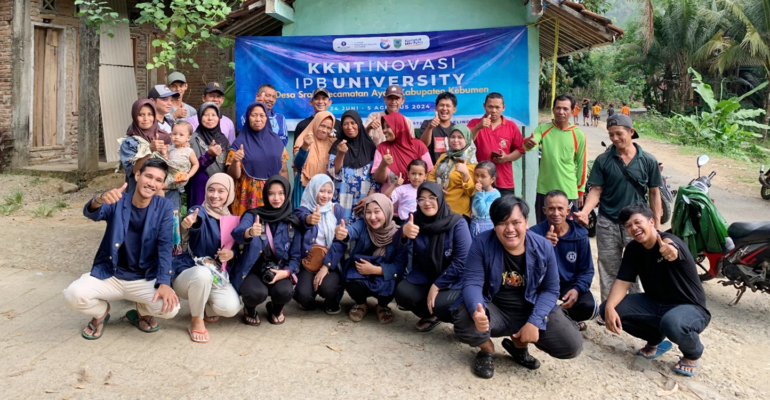IPB University KKN-T Innovation Students Socialize Livestock Waste Management in Srati Village

IPB University students held an outreach on livestock waste management in Srati Village, Ayah District, Kebumen, Central Java. This activity, initiated by Innovation Real-Thematic Work Lecture (KKN-T Innovation) students, aims to increase public awareness and understanding of the importance of protecting the environment by managing livestock waste correctly and effectively.
Livestock farming groups and local communities are invited to raise awareness of the importance of managing livestock waste properly. The reason is, so far people have been accustomed to throwing waste directly into the river, making it polluted
“Animal waste pollutes rivers, changes the color of the water and causes unpleasant odors. This is because 90 percent of livestock cages are located near riverbanks. People are confused about managing waste so they throw it into the river,” said Joselino, a student representative after observing the problems occurring in the village.
“KKN-T Innovation in Srati, we developed a solution by converting waste into organic fertilizer which is useful for agriculture and can be commercialized,” he added.
This socialization was followed by a demonstration of making organic fertilizer. Farmers in Srati Village have successfully applied this fertilizer to their agricultural land. Joselino hopes that the application of organic fertilizer can improve the quality of soil and agricultural products and reduce the negative impact of livestock waste.
Apart from providing waste management skills, this activity is also hoped to raise awareness among the public so that they no longer throw rubbish into rivers which pollute the water and beach tourist attractions in Srati Village.
“Srati Village’s success in managing livestock waste through fermentation is a step forward towards a cleaner environment and more productive agriculture. The hope is that this program will continue to form the independence of residents and villages, creating a chain of training of trainers in the transfer of knowledge in society,” explained Joselino. (*/Rz) (IAAS/ASD)



